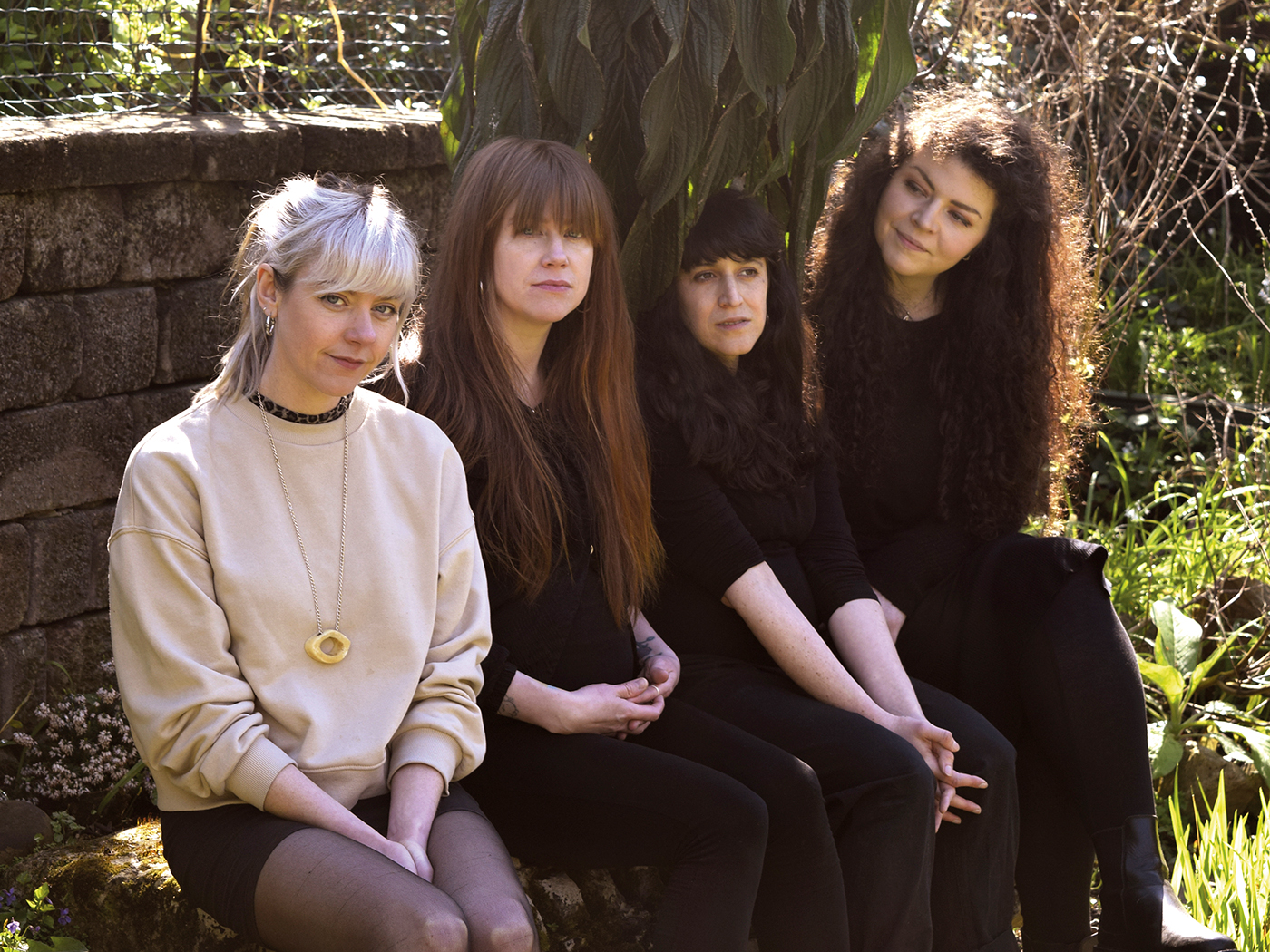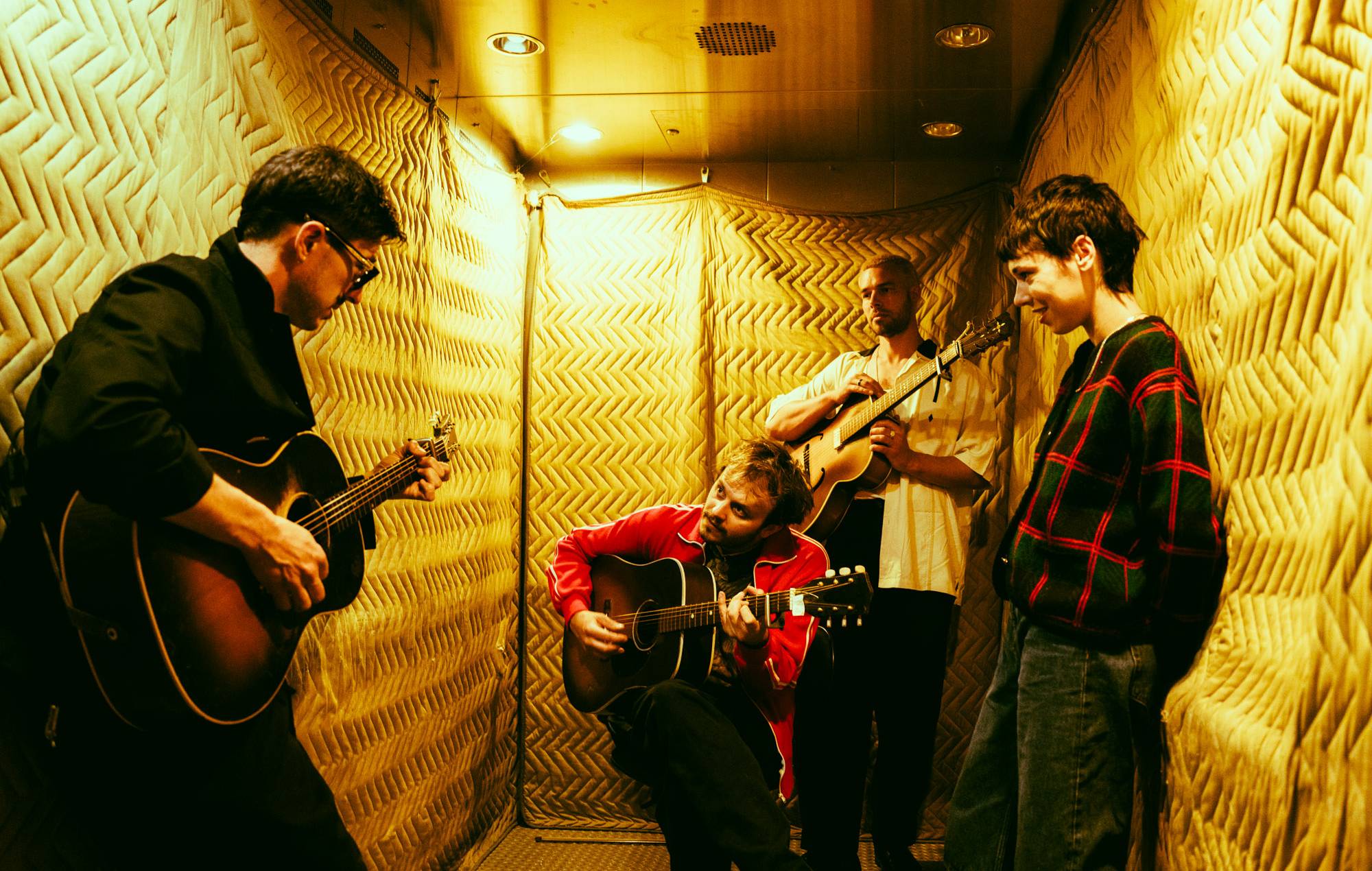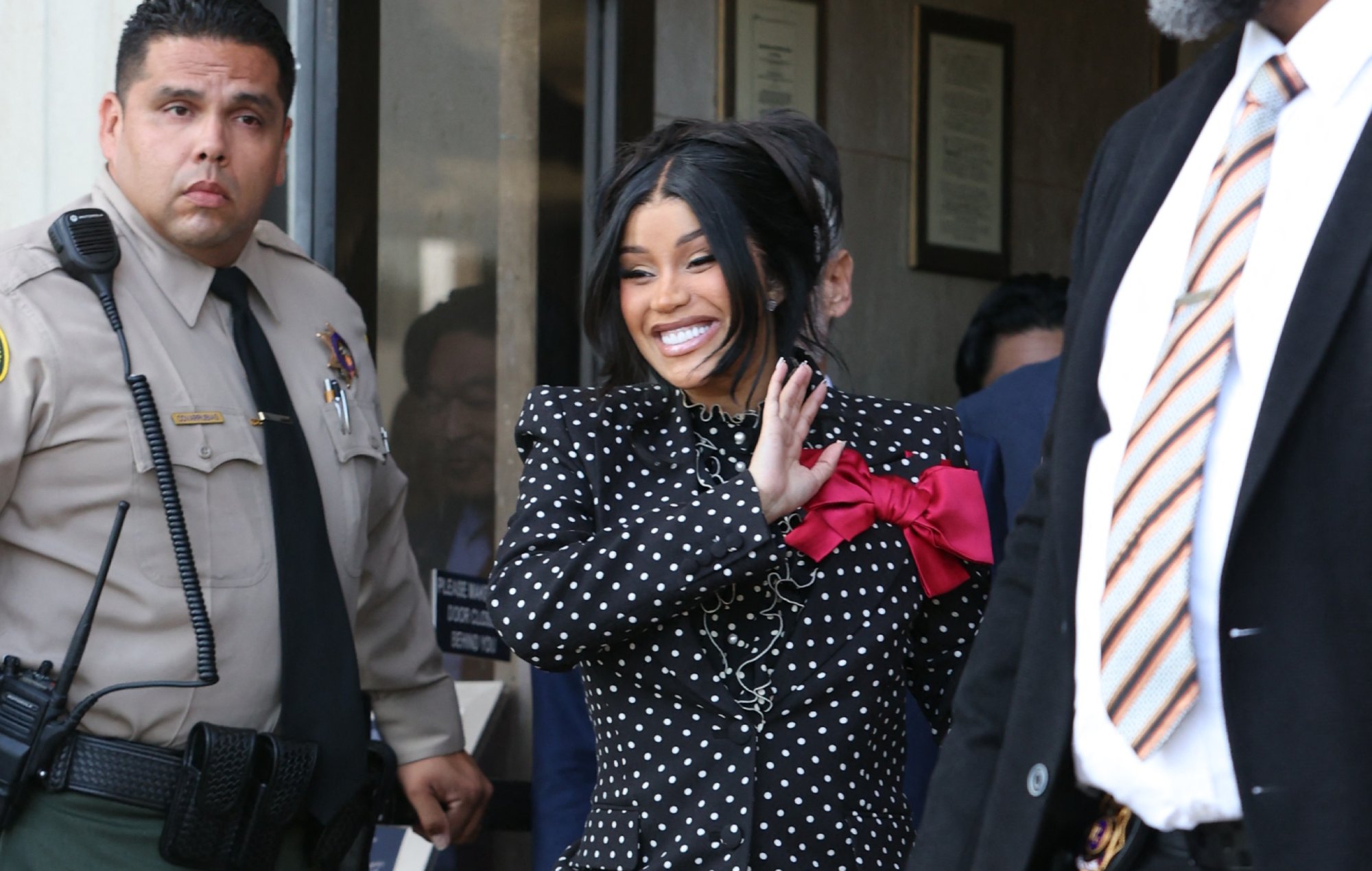
If traditional music from Dublin seems to be having its moment in the spotlight – most notably as a result of Lankum’s recent critical and commercial success – it’s only because the world is starting to pay attention. Lily Power, Méabh Meir, Ruth Clinton and Sinéad Lynch have been performing together as Landless for more than a decade, their paths crossing in college, through Dublin’s Sacred Harp traditional singing community and in the clubs that hosted the likes of Lankum and Lisa O’Neill in the early 2010s.
THE NEW UNCUT COMES WITH A FREE, ULTRA-COLLECTABLE JOHN LENNON CD – ORDER A COPY HERE
In 2018, they released their debut album Bleaching Bones, an extraordinary, entirely unaccompanied collection of traditional songs, helmed by False Lankum producer John “Spud” Murphy (you may have heard their stunning version of “The Well Below The Valley” on the recent Uncut covermount CD, The Planet That You’re On). Forthcoming follow-up Lúireach, again produced by Murphy, is no less extraordinary, with its careful use of instruments – pump organ, shruti box, fiddle and banjo from Lankum’s Cormac MacDiarmada, plus Alex Borwick’s trombone on album opener “The Newry Highwayman” – augmenting the four-part harmonies that remain the heart of the work.
“We recorded Bleaching Bones in churches and other interesting spaces, so we chose to leave it like that so that you could hear those acoustics,” says contralto singer Meir. “This one was recorded in the studio, and using other instruments gave it the depth those spaces gave the first album.”
“We’ve found ourselves singing in churches a lot over the years, because it really suits the music,” adds Clinton. “And if there’s an organ there, because I’m a pipe organist, it’s hard to resist playing it.” She uses the instrument to haunting effect on “Death And The Lady”, a supernatural 17th century folk song popularised by Norma Waterson and Martin Carthy.
Another evolution in the quartet’s sound comes from the inclusion of more recent commissions alongside more traditional fare. Of these, “Lúireach Bhríde” (“St Brigid’s Breastplate”) stands out: the lyrics, set to music by Clinton, come from a poem by the Donegal poet Annemarie Ní Churreáin, which was commissioned for the inaugural RTÉ Folk Awards in 2018 and is dedicated to the children born at the Bon Secours Mother And Baby Home for unmarried mothers at Tuam, Galway “The invitation was to reflect on 100 years since women had gotten the vote in Ireland, and the poem is about Brigid and her various powers of healing, smithcraft and poetry,” says Clinton. “The word lúireach by itself can also mean a protective song, or hymn, so it also worked as a standalone album title.”
“We’ve all been singing different traditional songs for a long time, and sometimes what we’ll do is bring one of those to Landless and write harmonies for it,” continues Meir. “‘My Lagan Love’ is one of those for me – a really well-known song I’ve been singing since I was a child, that sounds so different with the harmonies added.”
A particular favourite of the band is another song based on a poem, “The Wounded Hussar” by 18th century Scottish poet Thomas Campbell. “It’s what we call a ‘big’ song in traditional music, it has everything you want from a folk song,” says Power. “We first heard it performed by Rita Gallagher, who’s a big influence on us, and it’s one of the first songs I ever heard Maeve sing.”
Having recorded the album in February 2020 – with babies, house moves and the small matter of a global pandemic getting in the way of their original release plans – the band are taking some time to figure out their next steps after signing to world music label Glitterbeat (Gaye Su Akyol, Altın Gün). “Those guys are super cool,” says Lynch, “and we’re really excited to see what might come up outside of Ireland.”
When you purchase through links on our site, we may earn an affiliate commission. Here’s how it works.






